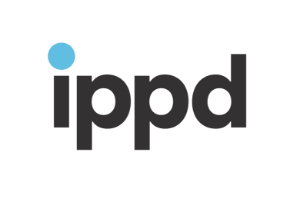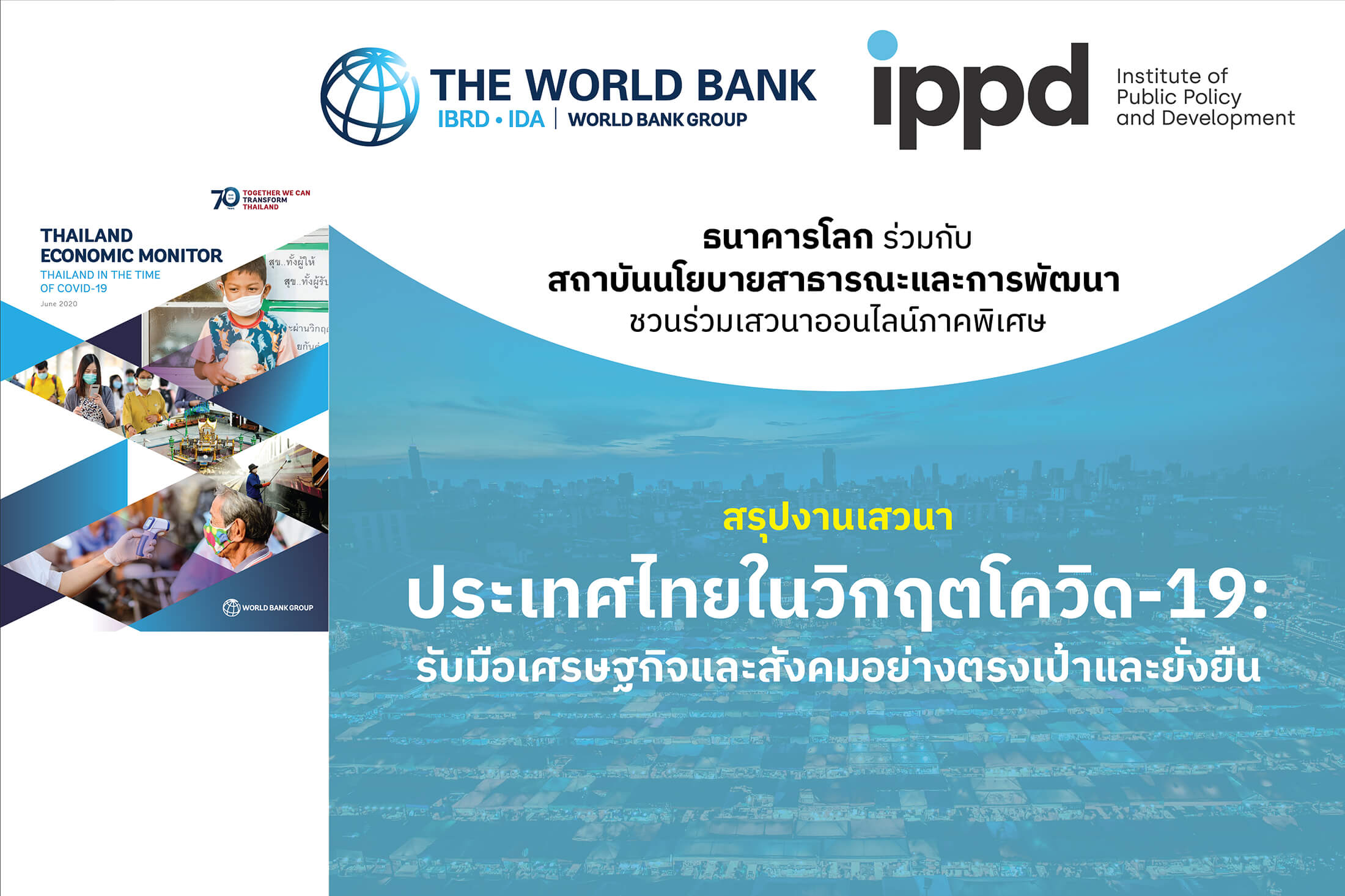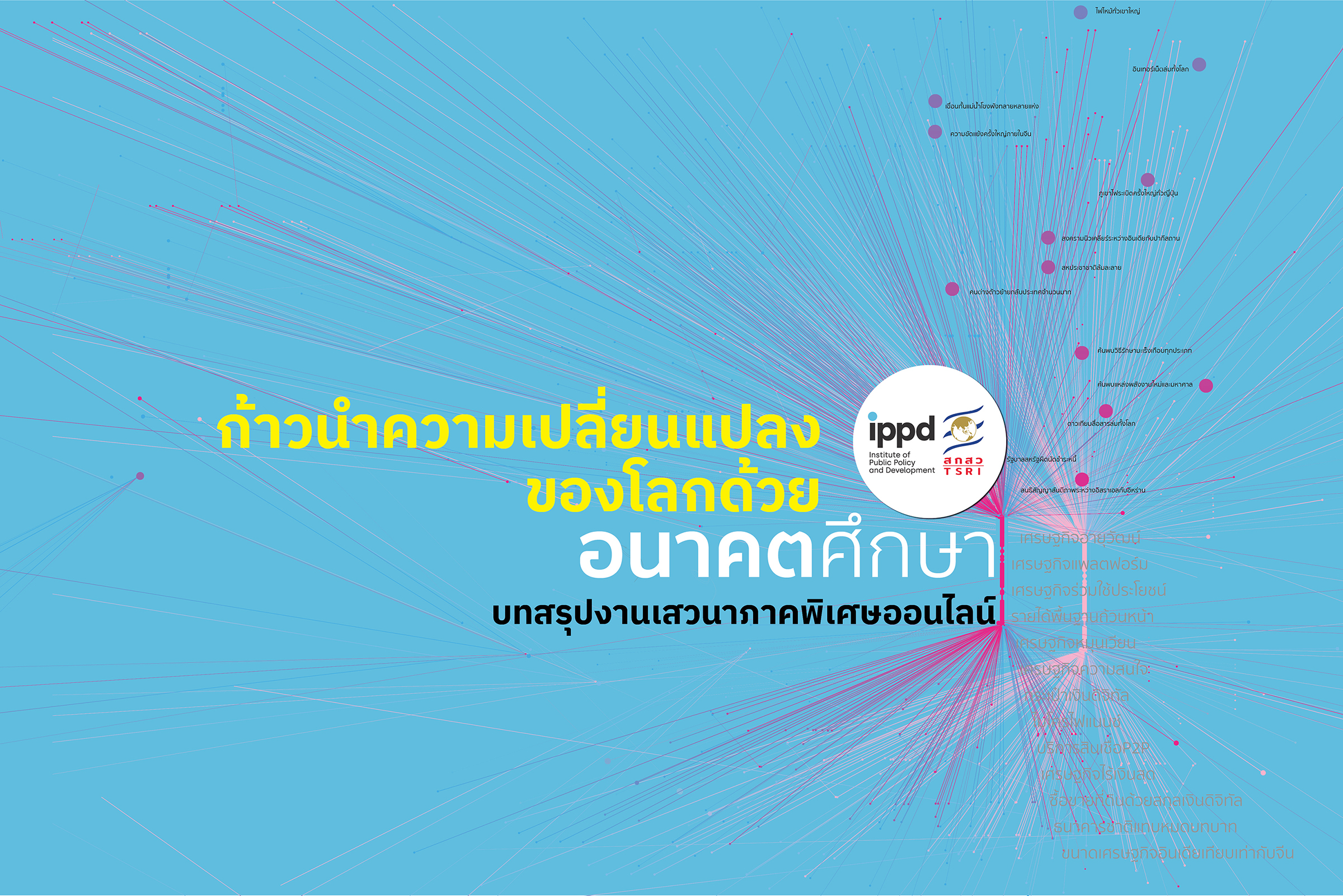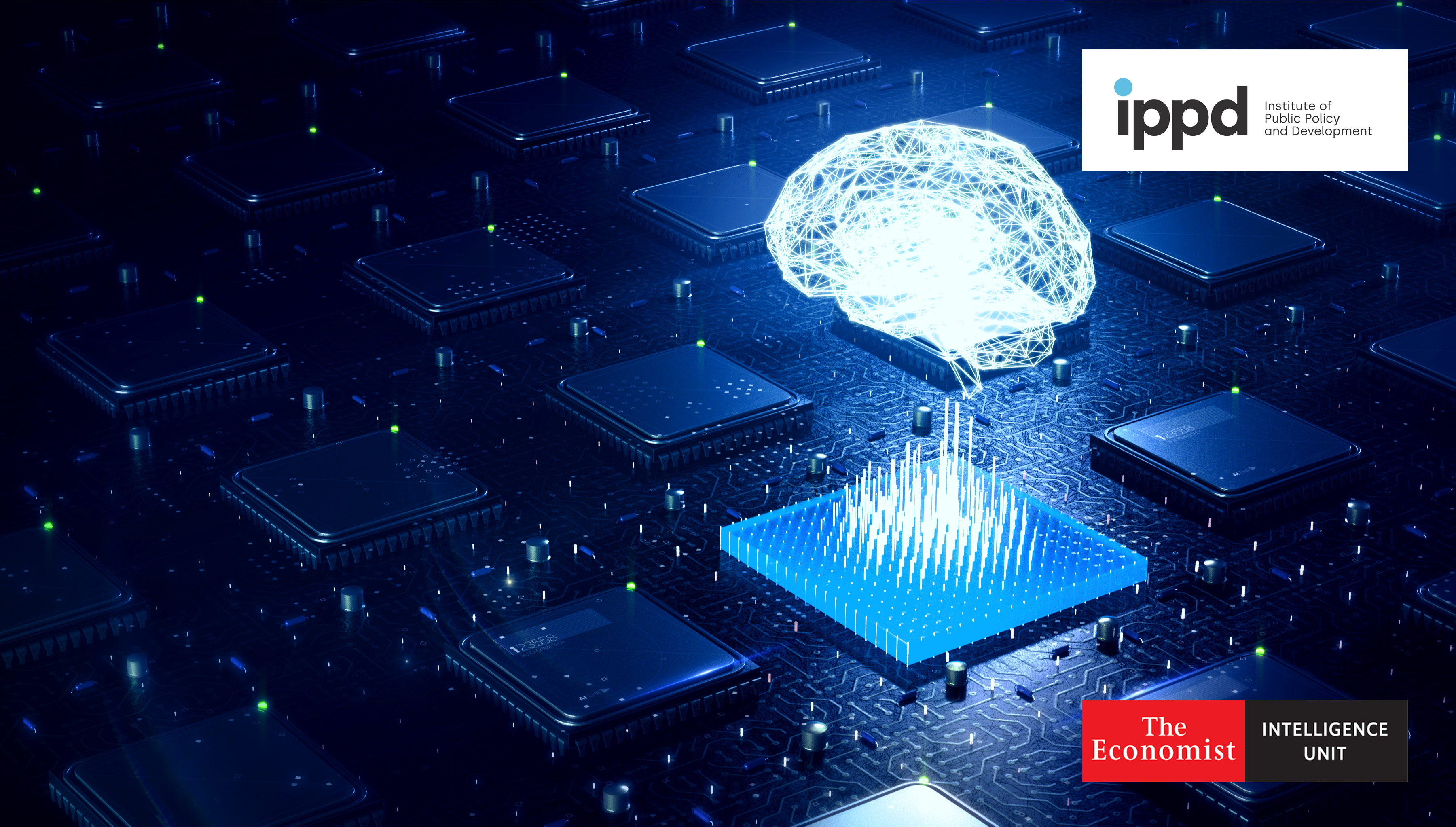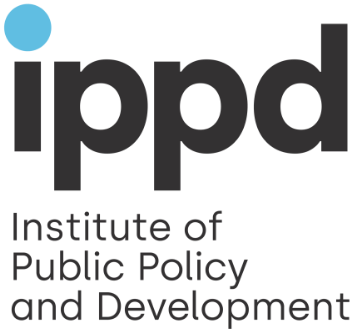Thanita Poonkulpong
Parima Suwannakarn
Wan Chantavilasvong
• Foresight is an important tool for designing public policy that is future-fit in a constantly changing world.
• The Delphi method is one of the foresight tools that is used for forecasting technological trends, whose key component is a diverse expert network.
It is undeniable that we are now living in a extremely volatile world that is driven by a multitude of factors, from political conflicts and international trade wars to extreme weather events, rapid technological advances, and the global spread of COVID-19. These factors each play a fundamental role in shaking the foundations of the economic systems and global society. With the increasing momentum of change, it is crucial that we are prepared for the ensuing whiplash.
Nonetheless, preparedness does not simply mean reactive measures. We need to employ proactive measures with careful planning that can mitigate the negative impacts caused by the uncertainties of the future. It is necessary for the government to use foresight in planning and designing public policies, including the evaluation of impending trends that may impact society. Lastly, as public policy is crucial to improving the population’s quality of life and the overall development of the country, it should not be based solely on past events without any regard for the future, but instead account for the possible futures.
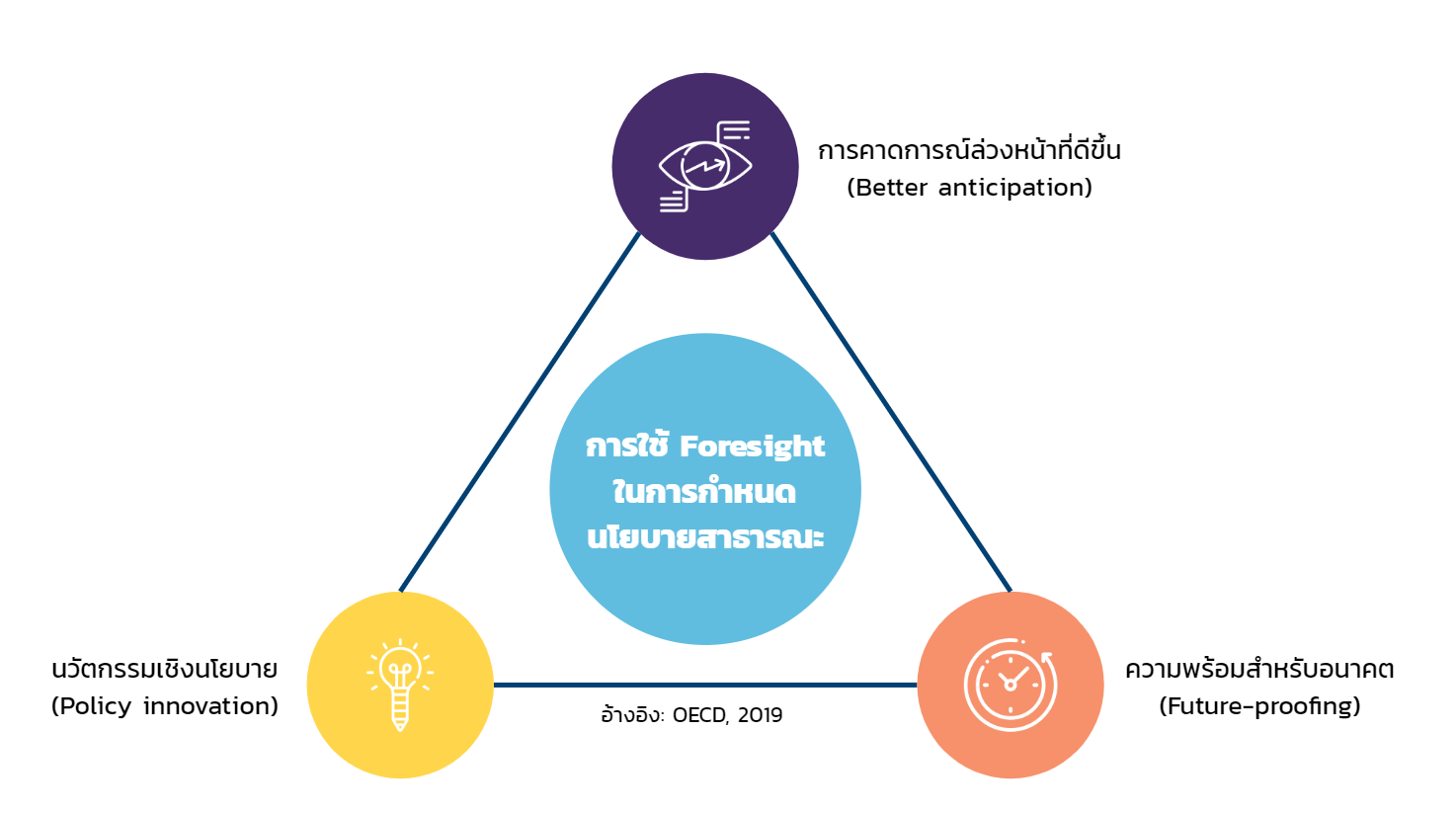
By utilizing foresight tools in public policy design, the government can predict opportunities and challenges that may occur in the future and create new policies based on the forecasts. It can also test the effectiveness of the policies against possible scenarios. Thus, foresight tools can increase a country’s capabilities and preparedness for the future. Nowadays, foresight is considered important for designing future-fit public policies in many countries. In Singapore, the government has established a forecast organization as part of the Prime Minister’s Office. The organization is involved in analyzing trends, assessing risks, and designing the direction of Singapore’s public policy. By employing these methods, Singapore is ranked as a country with high capability to prepare for and cope with crisis.
Foresight tools
Unlike forecast that predicts the future based on past and present events, foresight is the examination of possible futures through critical thinking and creativity. There are many methods of conducting foresight, including scenario planning, visioning, and Delphi method. Delphi is one of the more well-known tools of foresight, which is used to analyze trends that may not have clear data-based evidence, such as technological development trends, technology use trends, and morality and value trends in society.
The Delphi Method was developed by Olaf Helmer and Normal Dalkey, from The RAND Corporation. The method was first proposed in the 1962 article “An experimental application of the Delphi method to the use of experts.” Since then, the method has evolved and adapted for conducting foresight for use in other countries including Japan, Germany, South Korea, and in some countries in the European Union – as a tool to analyze the changing national trends of science and technology.
The main feature of the Delphi method is in the multiple rounds of collecting experts’ opinion, through at least two rounds of surveys. The first round responses are usually analyzed as a whole and returned to the experts, who can review other experts’ opinions anonymously. Following this feedback, the experts are once again invited to submit their response for the second round. As the experts are given the chance to consider their answers more than once and interact with other opinions, it can be said that Delphi is valuable and reliable method.
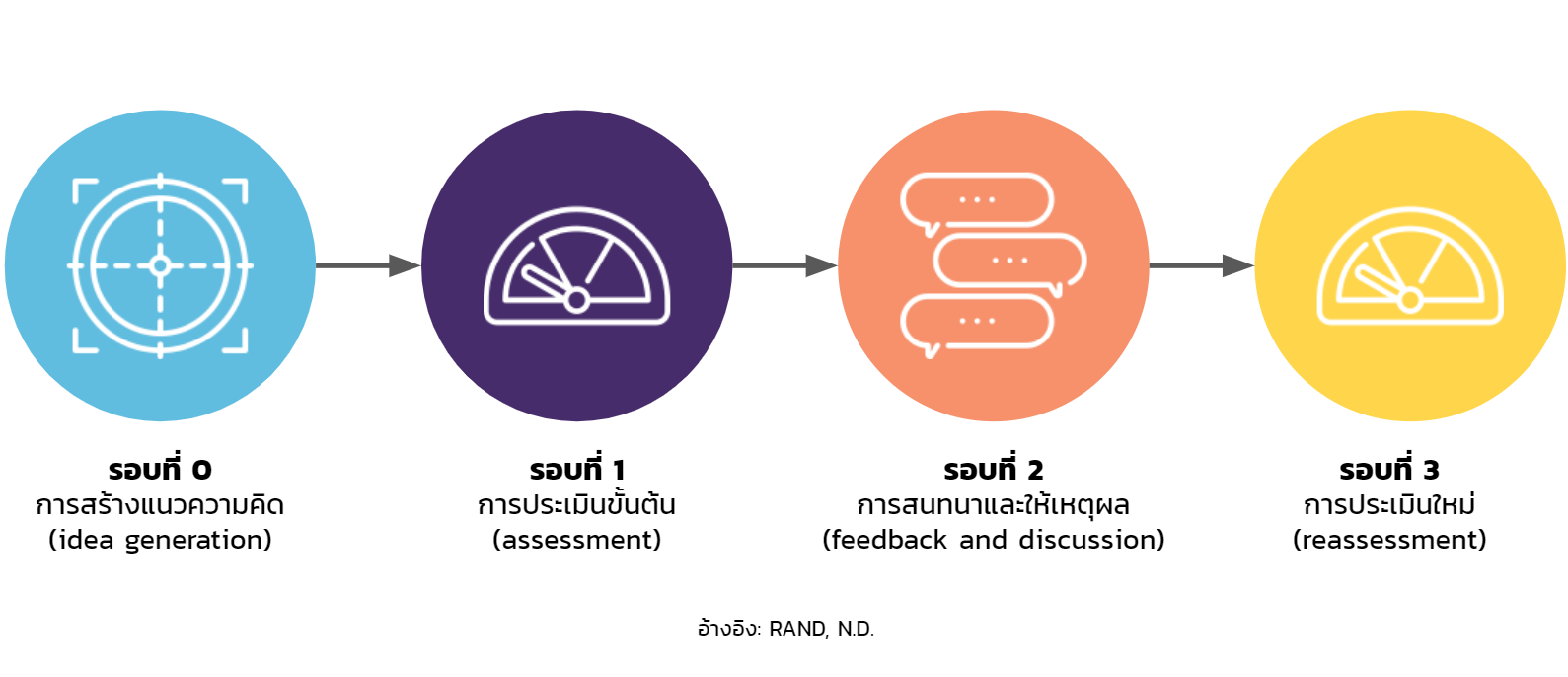
The RAND corporation institute has a developed ExpertLens, a tool based on the Delphi method. The tool consists of four rounds altogether: 1. idea generation, 2. assessment, 3. feedback & discussion, and 4. reassessment.
The strengths of the Delphi method lies in its systematic repetition, controlled feedback and anonymity of the experts. Therefore, the experts have the freedom to express their personal opinions and not be swayed by the majority or other pressures presented in group settings. At the same time, each expert can respond to the surveys in their own time, without the need to meet, reducing issues of coordination.
However, the limitations of the Delphi method is in the reliance on the experiences of the experts within the network. The experts are expected to make a thorough and give their carefully considered opinions, so the results can be used to accurately and effectively plan for future public policies.
Currently, the Institute of Public Policy and Development (IPPD)’s Foresight & Futures Lab (FFL) is researching and developing the Delphi method to serve as a tool in forecasting and analyzing future trends, alongside creating an expert network from diverse fields. The network will be a space for the specialists to exchange views and form a joint vision for Thailand’s future. The specialists will be involved in sustainable long-term development and public policy design, and eventually changing the policy design and supporting our country’s development in the future.
To create a transparent process that embraces new ideas, Foresight & Futures Lab (FFL) invite readers to nominate specialists who are knowledgeable about “future technological trends of Thailand” to participate in the IPPD Delphi network and plan Thailand’s future. The nominations can be submitted through the nomination form until June 28, 2020. If you have any questions or need to contact us directly, you can reach us at ffl@ippd.or.th.

